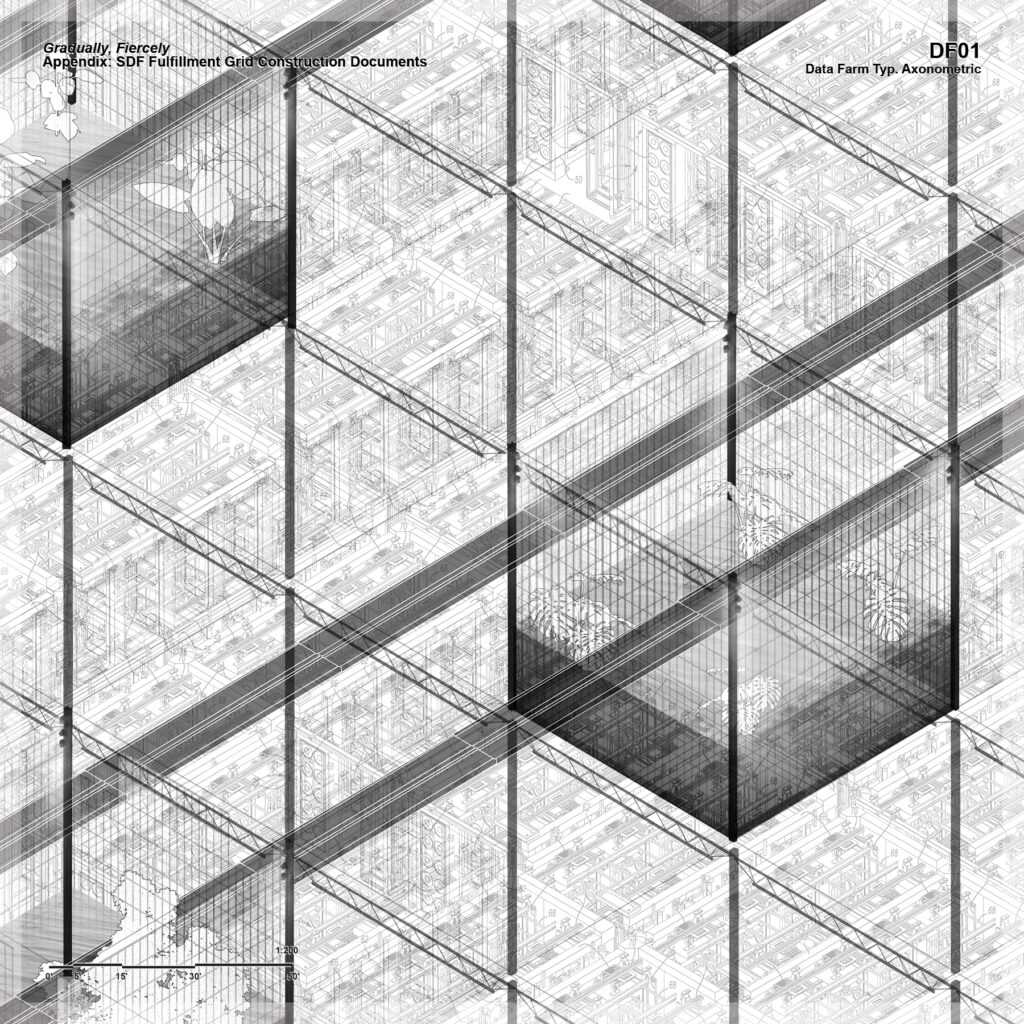
Gradually, Fiercely is a collapse of two paradoxes through the realization of the Fulfillment Grid. On one hand, contemporary consumerism provides an intense intimacy where one shops with no personal interaction, with doorstep delivery of anything in minutes, and with a data-driven, predictive knowledge of your habits. Meanwhile, the physical footprint of consumerism is further displaced with fulfillment centers that operate under a geography of delivery times and economic efficiency.
On the other hand, contemporary ecological principles exploit a similarly intimate knowledge of habitat categorization, persistent automated monitoring, and data-driven conservation prioritization. Simultaneously, these ecological principles rely on a physical vagueness or indifference deployed through landscape architecture, regional planning, and conservation policy.
This speculative pairing of ecology and consumerism investigates the potential of e-commerce to expand the field of landscape architecture as a generator of urban form. The logics of automation, economic efficiency, and the physical flexibility of the grid are paired with the logics of habitat creation, species movement, and systemic flexibility.
Portions of this project were published in Harvard Design Magazine No. 43 (Zielnicki, “Fulfillment”, 2016) and owes credit to OMA*AMO and Sergio Lopez-Pineiro.